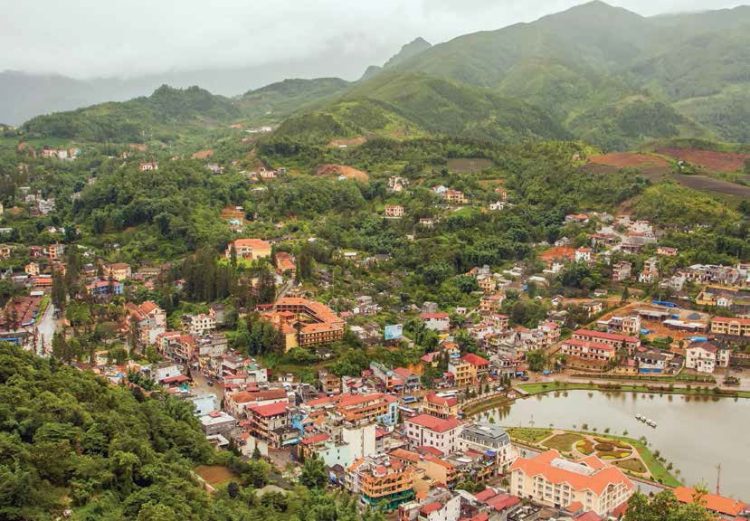Some of Vietnam’s niche casinos have been successful enough to significantly raise their bets
While real and proposed multi-billion dollar integrated resorts take center stage, Vietnam¡¦s winning gaming properties have far lower capital investment and target specific market niches.
Aristo International in Lao Cai, on Vietnam¡¦s border facing Hekou in China¡¦s Yunnan Province, had its soft opening last May with 40 tables, 58 EGM seats and 428 hotel rooms once construction was completed in November. Aristo, which boasts a swimming pool, tennis court, gym, spa, five restaurants and eight retail shops, cost $55 million and replaced the smaller Lao Cai International with eight tables, 36 EGM positions and 34 rooms that opened in 2002. Australia-listed Donaco International owns Aritsto, upping its stake in the Lao Cai venture from 75% to 95% at the start of last year. The Lao Cai provincial government remains a minority partner in what Vietnamese officials call the country’s most profitable casino, posting a $9 million net profit in its fiscal 2014.
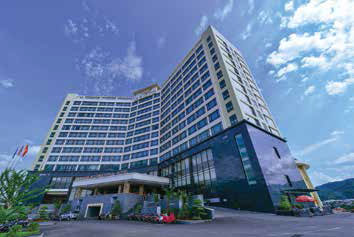
“Our traditional client base is in Yunnan, and there are not many gaming options for them,” Donaco Executive Director Ben Reichel says. “They can go to Macau, but they need a visa for that.” Alternatively, the province’s 46 million residents can cross into Lao Cai for 48 hours with just their ID cards through a border open 16 hours daily. China accounts for more than 90% of Aristo’s players, the overwhelming majority from Yunnan. Mr Reichel says the upgraded property reaches deeper into Yunnan—the largest city, Kunming, is a four-hour drive away via a new expressway—and beyond.
Aristo players bet in renminbi at three categories of tables. Main hall minimum bets range from RMB50 ($8) to 400, premium table minimums RMB600 to 2,000 and VIP minimums RMB4,000 with a RMB200,000 maximum. A mezzanine above the circular main gaming floor has eight private gaming suites, each with one table, generally reserved for VIPs. Throughout the casino, table designations can be easily adapted to suit demand. Some hotel suites have also been designed to accommodate gaming tables.
RICH TREATED RICHER
VIP play provides 90% of gaming turnover, with 90% of revenue from VIP and premium. “Our focus has been on the premium mass market and treating them like VIPs,” Mr Reichel says. “That’s the sweet spot we’ve identified, treating the medium rich like super rich.”
For the six months ended 31st December, mainly covering the soft opening period, Donaco reported gaming table turnover increased 18%, slot machine turnover grew 746%, and non-gaming revenue rose 822%, despite “headwinds.” Anti-Chinese riots in Vietnam broke out the week Aristo opened, prompting a second-level travel warning by China that prevented tour groups from getting travel insurance. World Cup football in June and July plus the Yunnan earthquake in August further cut gaming patronage. Mr Reichel notes Aristo didn’t begin full scale marketing efforts until its completion and fivestar certification in November, and that the travel warning wasn’t downgraded until January.
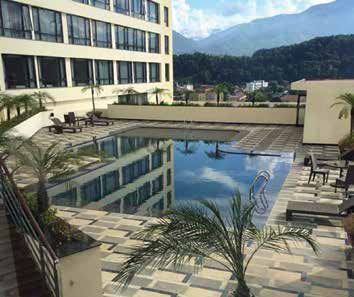
Revenue suffered from a July quarter VIP win rate of 1.29% and 2.09% for the full first half. Expensing A$1.2 million ($1.07 million) in stock options, a non-cash cost, and opening expenses at Aristo also hit the bottom line, resulting in first-half negative EBITDA of A$765,112 and a net loss of A$844,743. Aristo results, separated from the group’s gaming technology business disposed during the half, show normalized EBITDA of A$7.4 million, up 52% from the previous year, and net profit of A$4.3 million, up 29%.
Most “headwinds” died down in the new year, Mr Reichel says. Casino visits rose 45% in December and 82% in January. “In the past months, the anti-corruption campaign in China has started filtering down to our level of players,” he adds. “It’s had a bit of a chilling effect. People are laying low.”
Before Aristo opened, Donaco worked with 24 junkets, all from Yunnan. That number has risen to 33 since the property upgrade, including junkets from Singapore and Malaysia that usually take players to Macau. The new junkets have minimum check in and roll requirements for six-month periods, though Donaco wouldn’t disclose the amount. Junket commissions are normally 1.5% but promoters meeting their targets receive 1.6%. Donaco is considering entering into revenue sharing deals with junkets but hasn’t yet.
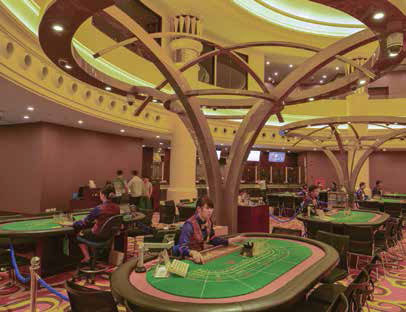
CAPITAL THINKING
Vietnam’s longest modern highway opened in September linking the Lao Cai border to Hanoi, cutting travel time to three hours. That’s helping Aristo on two fronts. VIPs from Chinese cities outside Yunnan, such as Shanghai and Shenzhen, are visiting Aristo via Hanoi airport. Aristo has also opened a marketing office in the capital city’s Koreatown area, targeting expatriates. “There are tens of thousands of Koreans in Hanoi with all the Korean companies that have invested there,” Mr Reichel says. “We have a weekend program for $5,000 players” that includes transportation and accommodation.
Expatriates in and around Hanoi are the lifeblood of Phoenix International Club in Bac Ninh, the closest casino to the capital, just 45 minutes away. Located on a major China trade route, Bac Ninh itself has more than 250 foreign investment projects, with thousands of foreign managers.
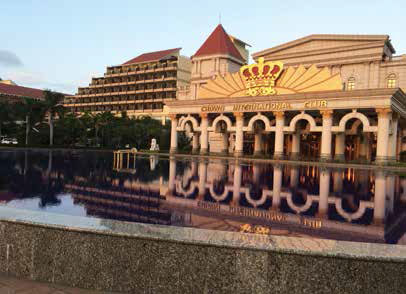
Phoenix International Club is a joint venture of Hong Kongbased regional gaming operator Silver Heritage Group and Phoenix International Travel Development, a Vietnamese company. The enterprise has begun migrating from its original property with six tables, 53 EGM positions and 38 rooms to a new hilltop resort three kilometers away with 30 tables, 100 EGMs and 120 five-star rooms plus a spa, karaoke bar, high-end restaurants, tennis court and golf driving range. The casino opened early this year and other facilities will be phased in over the next two years. Phoenix International¡¦s gaming operations are strictly mass market with no junkets.
That¡¦s a marked contrast to Crowne International Club in Danang which relies on Macau junket operators for players. Danang¡¦s large international airport, just seven kilometers from the casino, has four flights daily to/from Macau, and junket promoters organize additional charters from mainland China. Other operators say the casino gets ¡§significant¡¨ VIP business at its 56 tables, grown from an initial eight when it opened in 2010, plus 100 machines. The casino was built along with the separately run Crowne Plaza Danang, a four-star rated property with 535 beachfront rooms. ¡§It is just not a true luxury resort casino,¡¨ Global Market Advisors Partner Andrew Klebanow says. “It is nice, but not the highest caliber property.¨
Vietnam also has about 20 slot clubs, restricted to five-star hotels by a 2013 government decree. Ho Chi Minh City has 12 slot clubs, mainly clustered in upscale District 1, where international business and hotels are also concentrated, with six in Hanoi. HCMC clubs feature up to 80 slot machine and electronic table seats, mainly in elegant surroundings. Appropriately upmarket table game play, in US dollars, starts at $10. Several clubs have VIP areas with $100 minimums and maximum bets up to $10,000.
A knowledgeable source put Vietnam¡¦s total 2013 gaming market at $275-300 million, half of it from slot clubs. That¡¦s no small potatoes.
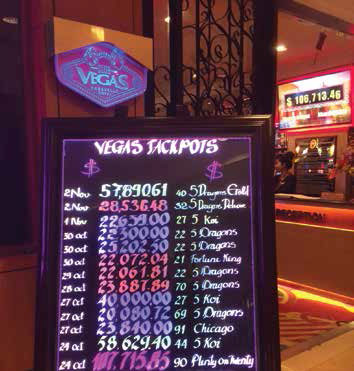
Editor at large Muhammad Cohen also blogs for Forbes on gaming throughout Asia and wrote Hong Kong On Air, a novel set during the 1997 handover about TV news, love, betrayal, high finance and cheap lingerie.






